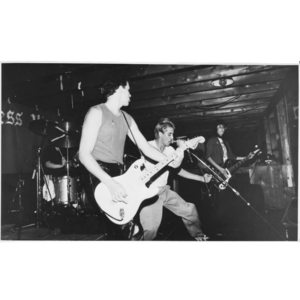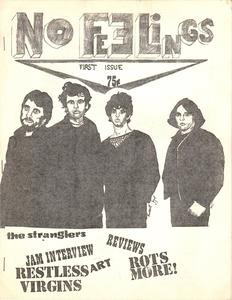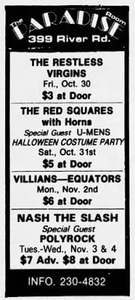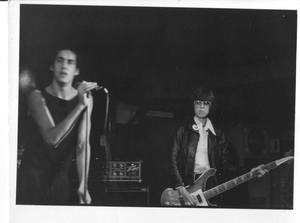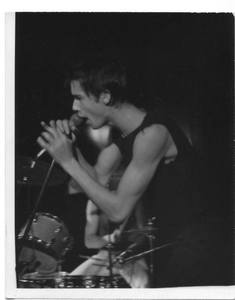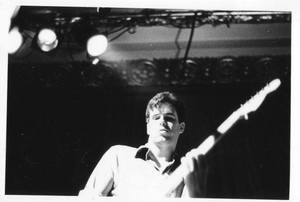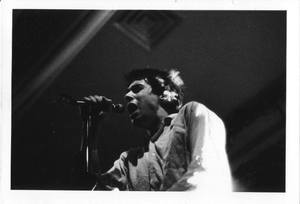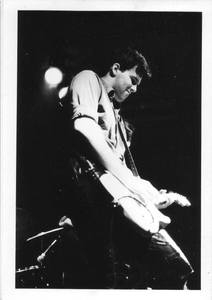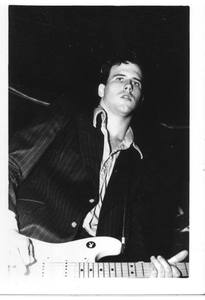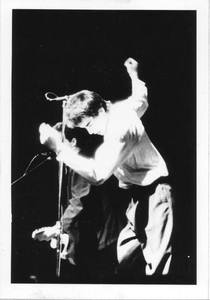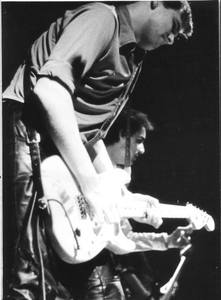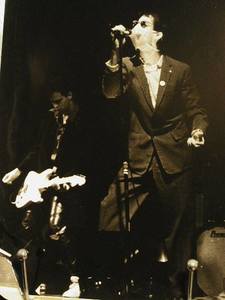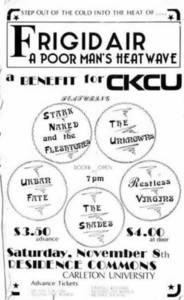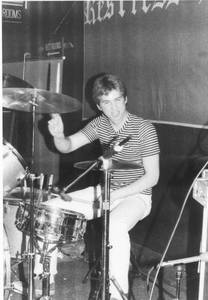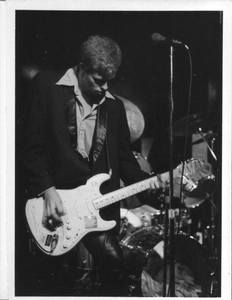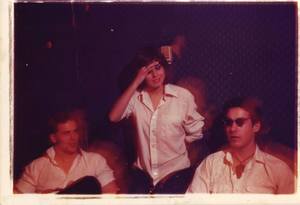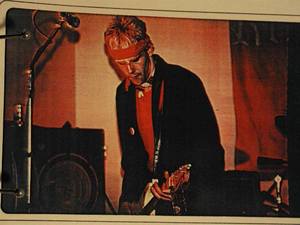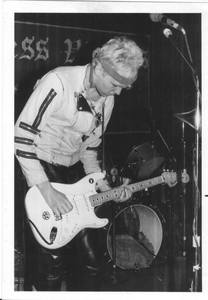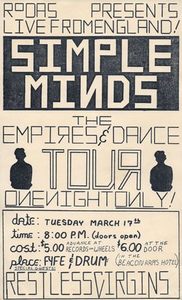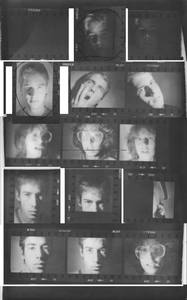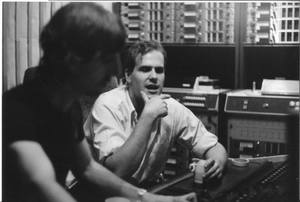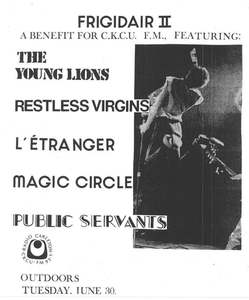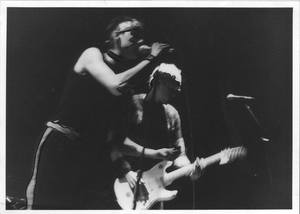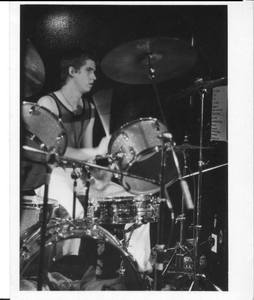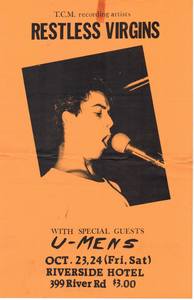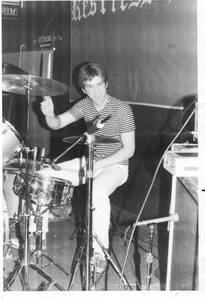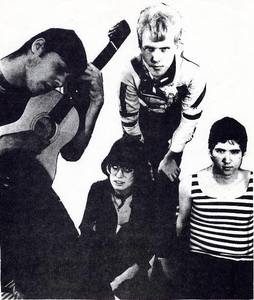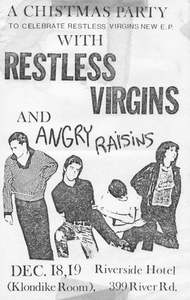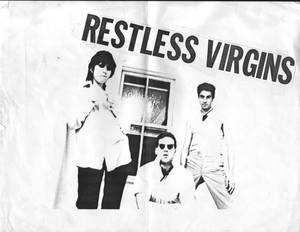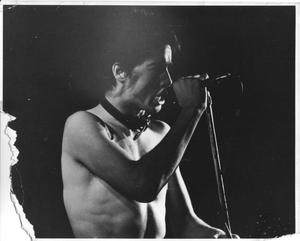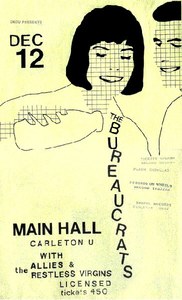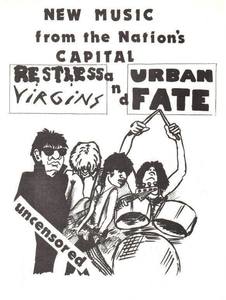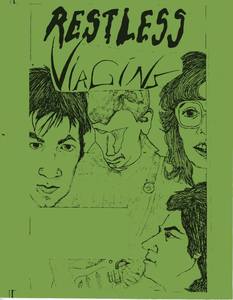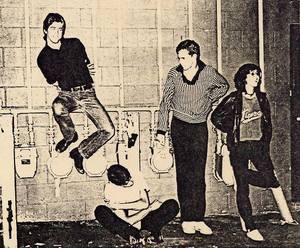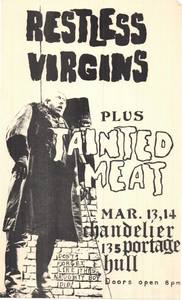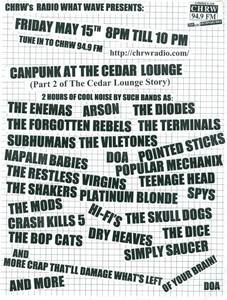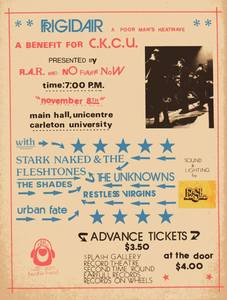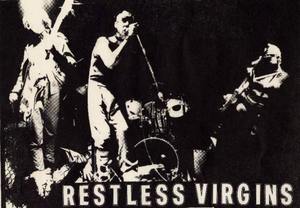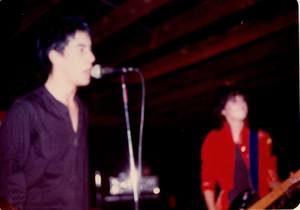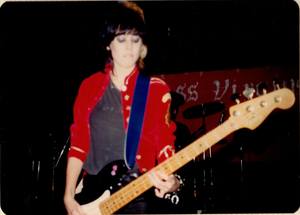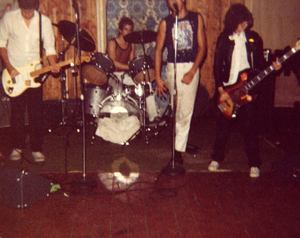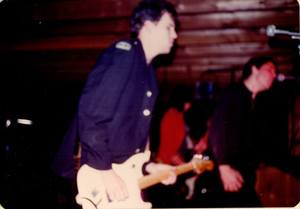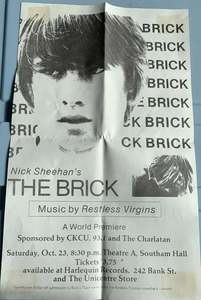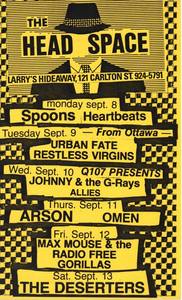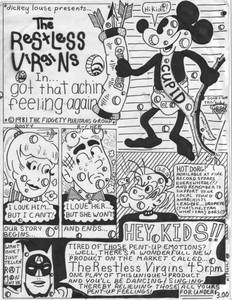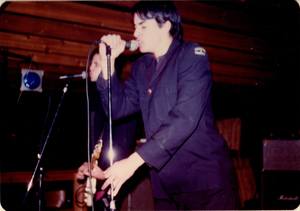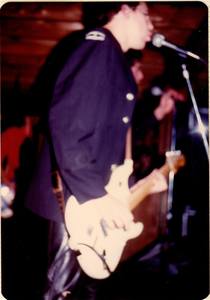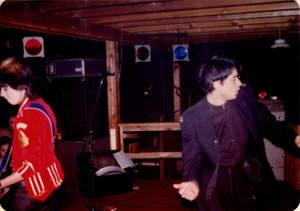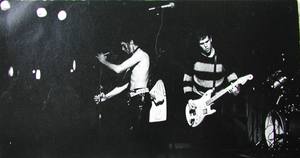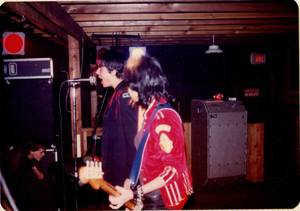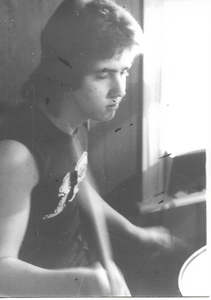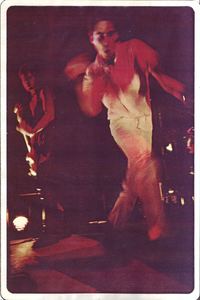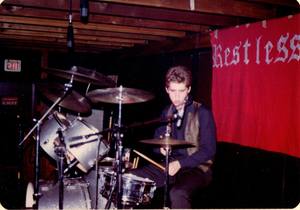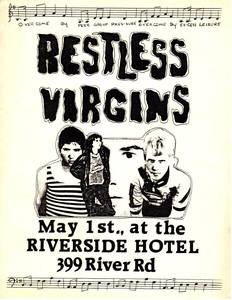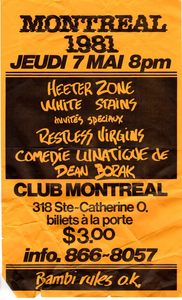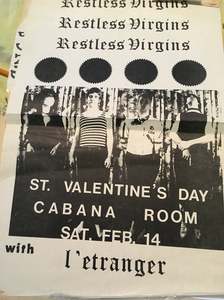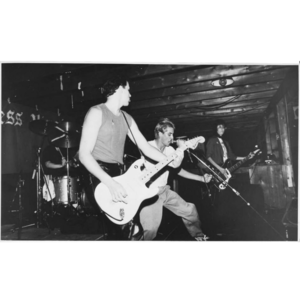Restless Virgins
Websites:
https://www.facebook.com/therestlessvirgins?checkpoint_src=any
Origin:
Ottawa, Ontario, 🇨🇦
Biography:
Restless Virgins – Ottawa’s Punk Ballet (edited Sept 20, 2025 to include band edits)
By Robert Williston
The Restless Virgins were one of Ottawa’s most original and politically charged post-punk bands of the early 1980s, remembered for their high-energy shows, confrontational lyrics, and refusal to compromise with the commercial demands of the time.
Formed in 1980, the group consisted of Nick Andrews (vocals), Steve Gelling (guitar, vocals), Mary Anne Barkhouse (bass), and Jeb Bond (drums). Several of the members had previously played together in short-lived high school projects such as the Tuesday Club Murders, but it was as the Restless Virgins that their vision coalesced. The name itself was borrowed from a proposed all-female band that never materialized; Andrews and Gelling decided it was too good to waste.
Ottawa’s underground scene at the dawn of the 1980s was small but determined, with CKCU-FM providing the crucial support that commercial radio refused to offer. By the fall of 1980, the Virgins were already playing regularly, just ahead of bands like Porcelain Forehead and The Randy Peters, who would emerge the following year. Connections crisscrossed the scene: Mike Hillis of Porcelain Forehead played in Tainted Meat, which shared stages with the Virgins, and Tainted Meat itself grew out of Urban Fate — another Ottawa band that often performed alongside the Virgins in both Ottawa and Toronto.
Frigidair and Early Recognition
One of the Virgins’ earliest high-profile appearances came at Frigidair, a November 1980 benefit for CKCU-FM and Rock Against Racism held at Carleton University. Sharing the bill with Toronto’s Stark Naked and the Fleshtones and St. Catharines’ Unknowns, the Virgins stood out for their ferocity and originality. Ottawa Revue critic Bruce Simpson hailed them as “Ottawa’s best band,” comparing their raw intensity to the Velvet Underground, while Trans FM’s Roch Parisien praised their “hyper-energetic set” and called them one of Ottawa’s premier original outfits.
Sound and Stage Presence
The Virgins developed a catalogue of originals that mixed punk urgency with wiry guitar lines, taut bass and drum interplay, and Andrews’ sharp-edged vocals. Their lyrics, as the band explained in interviews, dealt with real frustrations — “growing up in the adult world” and rejecting its hypocrisies — rather than adopting false postures about gangs or street violence.
On stage, they combined aggression with theatrical unpredictability. Ottawa Citizen described their shows as a kind of “punk ballet,” while Shades magazine reported Andrews punctuating one set with a headfirst dive into the crowd. These antics, coupled with humor and energy, made their concerts sweaty, athletic, and unforgettable.
Press and Reputation
The Virgins became fixtures at CKCU-sponsored Frigidair concerts, organized with Rock Against Racism. At Frigidair II in 1981, Martin Eddy described them as “the backbone of the scrappy new music scene in Ottawa,” noting their role in organizing as well as performing. In another profile, Ottawa Citizen highlighted their appeal to suburban youth, quoting the band’s aim to get audiences “up and happy and thinking.”
Touring and Gigs
By late 1980 the Virgins were already venturing outside Ottawa. That September they embarked on a nearly month-long stay in southern Ontario, beginning with three nights at London’s Cedar Lounge Hotel before moving on to Toronto. There, they played most of the city’s key venues of the era — including the Cabana Room, Larry’s Hideaway, Beverly Tavern, and The Turning Point — while sleeping on friends’ floors, with relatives, and even at the YWCA thanks to a fan.
In March 1981 they landed one of their biggest opportunities, opening for Simple Minds at the Fife & Drum on Albert Street — the band’s first Ottawa appearance. Later that year they performed at Hull’s Chandelier Club and Montreal’s Station 10, while continuing to return to Toronto and London for additional gigs. They also opened for Robin Lane & the Chartbusters, and shared bills with L’Étranger, Stark Naked and the Fleshtones, and St. Catharines’ Unknowns.
Local gigs remained central — from Carleton University shows to all-ages nights at the Riverside Hotel’s Paradise Room, where they deliberately played early enough for teenagers to still catch the last bus home.
Recordings
In June 1981, the band issued their three-song EP Television Child / Hotel Song / What Can I Get From You on their own T.C.M. label (named after Tuesday Club Murders). Recorded at Ambience Studios, the EP became their calling card and charted at #4 on CKCU’s Alternative Singles and EPs list that summer.
On October 24, 1981, the Virgins recorded a live set at Ottawa’s Riverside Hotel, producing their second release with the tracks Land of the Free, No Reason to Be Glad, and Playschool Socialism. These songs reflected their most overtly political side, tackling subjects from El Salvador and Iran to torture and false democracy.
That same year filmmaker Nick Sheehan enlisted the Virgins to compose and perform the soundtrack for his educational film The Brick, which addressed teenage drug abuse. Sheehan praised their adolescent energy and active message, calling them a perfect match for the film’s themes.
By the end of 1981 the band had amassed more than 20 original songs, sometimes augmenting their sets with covers by their heroes: “Private Affair” (The Saints), “I Wanna Be Your Dog” (Iggy Pop), and “TV’s On the Blink” (The Action).
Legacy
The Restless Virgins embodied the defiance of Ottawa’s underground: young, outspoken, and unwilling to bend to commercial pressures. Critics consistently hailed them as one of the city’s most innovative acts, and their peers looked to them as organizers as well as performers. Their discography may have been brief, but their shows left a deep impression — sweaty, confrontational, and filled with a sense of possibility.
-Robert Williston
Nick Andrews: lead vocals
Steven Gelling: guitars, vocals
Mary Anne Barkhouse: bass
Jeb Bond: drums
